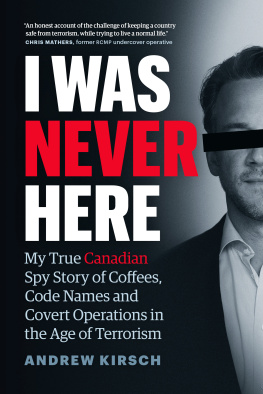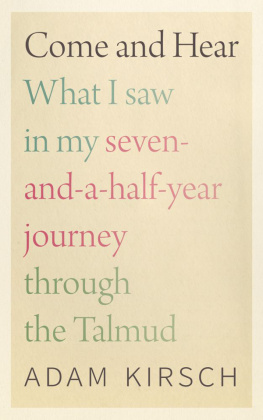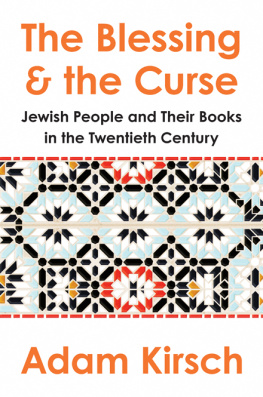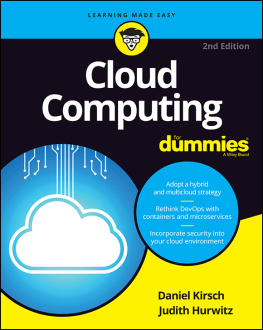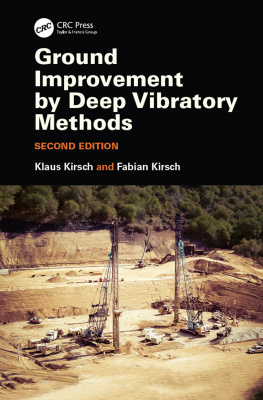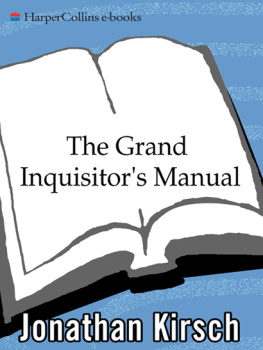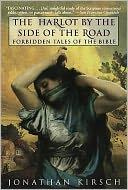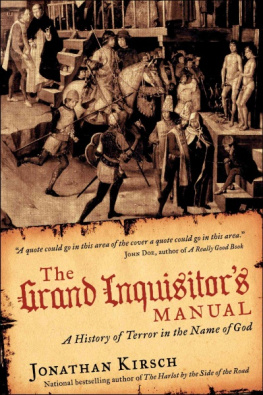I Was
Never
Here
6
New to
the Community
I n those early days I was mostly doing address checks and some random one-off information-gathering assignments where I got to practise introducing myself as Andrew from CSIS . It was definitely a little strange at first, especially since I was now back in Toronto trying to work discreetly in the city where Id grown up and most of my family still lived. The odds of running into people I knew in Ottawa were small. Toronto was a much larger city but there were many more people who knew me there. They were like hidden landmines, and avoiding them added a little more stress to my new undercover life.
I am very close with my family and would see them every weekend. I wasnt able to tell them much about what I was doing beyond the fact that I knocked on doors and talked to people. They didnt know my alias, my geographic area of focus or anyone I worked with. They knew where I worked, and that was enoughthey didnt press me for details I wasnt able to share.
I had gone away to university, lived abroad in London and then moved to Ottawa. Most of my Toronto friends werent necessarily used to having me around. A few knew where I worked. Most didnt. I found myself gravitating to work colleagues in Toronto more than I had in Ottawa. I typically liked to separate my work and personal life, but I found a lot of comfort being surrounded socially by people I could speak to openly about the unique stresses and challenges of the job. It was awkward to run into old friends and have to fumble through an answer about where I had been and what I was doing now.
The distinction of my two lives was brought much more into focus being back home. All day long I would be running around the city introducing myself as an investigator from CSIS , and at night and on weekends, to people from my real life, I was a make-believe government bureaucrat. With the exception of my name, I was doing far more lying in my real life, which was definitely one reason I gravitated more to the people who knew me by my fake one.
After about a month on my regional desk I got my first formal project: investigating the threat of terrorism in Canada by members or associates of Al Qaeda ( AQ ) in Iraq. To put this in perspective and proper context, in 2007 the United States escalated its presence in Iraq by deploying additional troops in an effort to enhance security. This surge and the subsequent years did have a positive effect, and by 2011 a lot of information that had been gathered from military operations in the country was starting to come out. Our desk was receiving a steady stream of intel from our American friends on Canadians and people with ties to Canada who might also have connections to Al Qaeda and those involved in the conflict in Iraq.
Our concerns were that Al Qaeda could use supporters in Canada to fundraise or provide material assistance to the war in Iraq. Or worse, members of the terrorist organization could conduct attacks in Canada or use Canada as a base of operations for attacks in the United States. These leads and these threats were now my responsibility.
The challenge I faced with this assignment was that the majority of the potentially threat-related information was completely impossible to track down in its current form. It could be as obscure as Ali ( LNU ) from Toronto is believed to be in touch with members of AQ in Iraq. In some cases, the information was about people who had possible ties to AQ wanting to come to Canada. They werent even here yet.
Quick clarification: LNU means last name unknown. If we knew a first name but not a last name, we would say Andrew ( LNU ). It is pronounced lenu or linu. Similarly, for first names, FNU stands for first name unknown. The woman who had told me that the tenant wasnt home was a Finu Linu.
Another issue was that when there was concrete information, there often wasnt any context provided on the nature or severity of the threat. Phone number (416) 555 - XXXX was believed to be in contact with persons associated with AQ in Iraq. What does persons associated mean? Were the people here a threat? Were the people they were in touch with a threat?
Basically, I was handed a list of broken leads and people who may or not be identifiable. And even if they were, I didnt have any concrete information that would specifically tie them to threat-related activities as defined by the CSIS Act.
My supervisor had been in CSIS for a while. We sat down and assessed the challenge of tracking down these leads. We couldnt ignore the information we had already received and the likelihood we would get more. A trusted contact or human source would likely be the first person we would bring this list to, to ask them for input. They might say, Oh, I know so-and-so, dont worry about them, or that it looked like an individual who had recently moved here, and they would then go find out more. At that time, we did not have a suitably strong network in the Iraqi community we could consult with for support and assistance. I was tasked with developing one.
There is a misconception that CSIS only talks to people who are in trouble or close to people of concern. That is very far from the truth. We rely on sentinel contacts who are leaders in their community. We are constantly looking for those who have wide networks and associations. We want to know the people who know whos who and whats going on.
These community contacts arent in trouble and generally appreciate CSIS talking to them and looking to them for advice and guidance on what is happening. Many communities are extremely close-knit, and if individuals come into the community who are not who they appear to be, or someone acts out and may be of concern, these leaders will be the first to know about it. They are invaluable in helping understand the community, for raising concerns to CSIS , and they can advise on any issues that we bring to them.
Over the next year I spent most of my time as a regional investigator trying to solicit assistance from the ninety-nine percent who were honest and good people while I tried to track down the one percent who were up to no good. I got much more comfortable in my investigator role, talking to people and collecting information. These arent high-stakes negotiations over baccarat and cocktails at a casino. Its much less glamorous. I was in the coffee-and-conversations business.
One thing some people may not consider, but is actually key, is how to approach someone. There arent hard and fast rules; every person and situation is different. The two general approaches are a cold callknocking on someones door at home, work or somewhere else you know they will be, but they dont know youre comingor, alternatively, phoning them in advance and arranging a time and place to meet. There is no way to know how someone will react to a request to meet from CSIS . For most Canadians its not every day their domestic intelligence service wants to talk to them. Ive seen some people panic and others so calm that it was a little unnerving.
I started out with a cold call approach. The benefit of a cold call is that I could manage the interview subjects reaction in person. I would knock on their door and, if they were home, show them my badge, put a non-threatening face to the name of the organization and be there to reassure them that everything was all right and they werent in trouble. Most importantly I could speak to them about what I needed to talk to them about before they had a chance to talk to other people. I always wanted to keep these conversations confidential, and when I met them for the first time in person, I could stress that on the spot and read the person to get a sense of whether they understood what I was asking for.
Of course, I ended up knocking on a lot of doors when people werent home. I might try that one or two times before I gave up the element of surprise and tried calling in advance to set up the meeting. I also felt scheduling a meeting was a more respectful and less confrontational approach. I always had in the back of my mind the sweaty palms of my security screening interviewees, as well the experience my friend had when CSIS arrived at his new job for my reference check. Most people dont like to be surprised at home or at work by a visit from the government. I appreciated that it could be stressful to have someone from CSIS show up at your door and ask to talk. They may understand the situation, but it can cause some grief. Building rapport and trust, and establishing confidentiality, were the key goals of the first meeting. This would be harder if a first impression involved embarrassing them or making them feel uncomfortable in front of family or colleagues.
Next page
